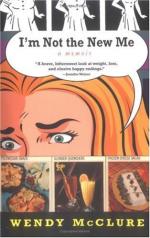The meeting that named Baker as its choice for Congress appointed Lincoln one of the delegates to the convention. “In getting Baker the nomination,” Lincoln wrote to Speed, “I shall be fixed a good deal like a fellow who is made a grooms-man to a man that has cut him out, and is marrying his own dear ‘gal.’” From the first, however, he stood bravely by Baker. “I feel myself bound not to hinder him in any way from getting the nomination; I should despise myself were I to attempt it,” he wrote certain of his constituents who were anxious that he should attempt to secure the nomination in spite of his instructions. It was soon evident to both Lincoln and Baker that John J. Hardin was probably the strongest candidate in the district, and so it proved when the convention met in May, 1843, at Pekin.
It has frequently been charged that in this Pekin convention, Hardin, Baker, and Lincoln agreed to take in turn the three next nominations to Congress, thus establishing a species of rotation in office. This charge cannot be sustained. What occurred at the Pekin convention has been written out for this magazine by one of the only two surviving delegates, the Hon. J.M. Ruggles of Havana, Illinois.
“When the convention assembled,” writes Mr. Ruggles, “Baker was there with his friend and champion delegate, Abraham Lincoln. The ayes and noes had been taken, and there were fifteen votes apiece, and one in doubt that had not arrived. That was myself. I was known to be a warm friend of Baker, representing people who were partial to Hardin. As soon as I arrived Baker hurried to me, saying: ’How is it? It all depends on you.’ On being told that notwithstanding my partiality for him, the people I represented expected me to vote for Hardin, and that I would have to do so, Baker at once replied: ’You are right—there is no other way.’ The convention was organized, and I was elected secretary. Baker immediately arose, and made a most thrilling address, thoroughly arousing the sympathies of the convention, and ended by declining his candidacy. Hardin was nominated by acclamation; and then came the episode.
“Immediately after the nomination, Mr. Lincoln walked across the room to my table, and asked if I would favor a resolution recommending Baker for the next term. On being answered in the affirmative, he said: ’You prepare the resolution, I will support it, and I think we can pass it.’ The resolution created a profound sensation, especially with the friends of Hardin. After an excited and angry discussion, the resolution passed by a majority of one.”
Lincoln supported Hardin as energetically as he had Baker. In a letter[3] to the former, hitherto unpublished, written on May 11th, just after the convention, he says:




